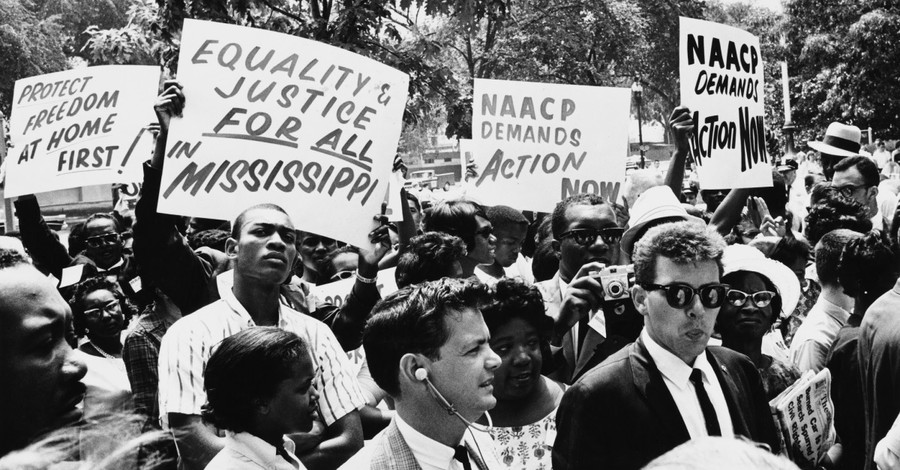
When I worked as a day camp counselor, there was one song we never really had to teach the kids: “This Little Light of Mine.” With other camp songs, we’d walk them through the hand motions or have them practice the chorus a few times. But with that song, there was none of that. They knew what to do. Pointer fingers were raised, held out like candles. Heads began to sway. And every camper and counselor would begin to sing, “This little light of mine, I’m gonna let it shine …”
It’s pretty powerful if you think about the lyrics. “Won’t let Satan blow it out …” “Hide it under a bushel? NO!” When you get down to it, “This Little Light of Mine” is more than a sing-along song. It’s a rallying cry. It’s about meeting the darkness with unwavering hope.
As with so many gospel songs, the origins of “This Little Light of Mine” are a little unclear. Some people believe that it was first sung on the plantations, a slave spiritual like “Go Down Moses” or “Swing Low, Sweet Chariot,” but that’s been debunked. In fact, most sources claim that was written in the 1920s by composer and teacher Harry Dixon Loes (who was white), although recent research by the Moody Bible Institute has found no evidence to suggest that he was the original songwriter or even claimed to be. Loes is credited with producing a popular arrangement of the song in the 1940s, but that’s about it. So, long story short, we’re not sure where the song came from.
The real history of “This Little Light of Mine,” though, began in the 1960s. It was first repurposed in the 1950s by Zilphia Horton, a musician and folklorist who was known for turning hymns into “freedom songs” (most famously, “We Shall Overcome”). She taught her version to folk singer Pete Seeger, and by the late 1960s, “This Little Light of Mine” had become a protest anthem for the Civil Rights Movement.
The simplicity of the song made it easily accessible. It could be sung by anyone in any situation. One Freedom Singer from the time, Rutha Mae Harris, described “This Little Light of Mine” and songs like it as a kind of nonviolent weapon. “It kept us from being afraid,” she told WLRN. “We’d start singing a song, and somehow those billy clubs would not hit you. It played a very important role during the movement.”
The song’s simplicity also made it especially malleable. Blues singer Bettie Mae Fikes told NPR about inserting the names of various officials into the lyrics during a protest in 1963:
“I just started adding our oppressors in the song: ‘Tell Jim Clark [the sheriff of Selma], I’m gonna let it shine. And as I added my oppressors, other people in the audience began to shout out: ‘Tell the KKK!’ “Tell our president!’ It was like being free.” The result is one of the rawest and most impactful versions of the song ever recorded.
When sung in defiance, when used to call out the darkness of racism and oppression and hate, and when affirming the God-breathed dignity that flickers within every one of us, “This Little Light of Mine” becomes so much more than a camp song. It becomes gospel truth.
In the years since, there have been some countless renditions of “This Little Light of Mine” by a variety of musical artists, from Sam Cooke to Raffi to Rend Collective. It is still sung by kids the world over. And yet, I find that the song is most at home when it is sung by people who really mean what they’re singing. A few years ago, the song was sung in Charlottesville, Virginia, by a group of anti-racist protestors responding to a white nationalist rally. It’s an unforgettable moment: men, women, children, young, old, black, white, straight, gay, clergy, unchurched, all standing and singing as one: “This little light of mine, I’m gonna let it shine…” They understood the song in a way that few do.
When sung in defiance, when used to call out the darkness of racism and oppression and hate, and when affirming the God-breathed dignity that flickers within every one of us, “This Little Light of Mine” becomes so much more than a camp song. It becomes gospel truth.
Photo courtesy: ©Getty Images/Archive Photos/Stringer
LightWorkers’ mission is to create engaging, uplifting and inspirational content that breaks through the clutter, building a community of sharing and igniting a movement in the real world that motivates people to celebrate and share the good all around them.
Visit their website.










